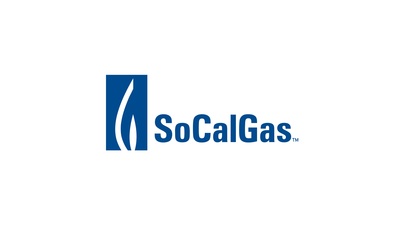LOS ANGELES, Nov. 16, 2021 /PRNewswire/ -- Southern California Gas Company (SoCalGas) today announced it will support research to test and further develop an innovative technology that captures carbon dioxide from the air while simultaneously collecting water that can then be reused for irrigation. Testing the new carbon capture technology, called Isothermal Water Vapor and CO2 Capture (IWVC), will provide key insight into its efficiency and operating costs, ultimately determining the cost-effectiveness of its deployment at scale. SoCalGas contributed approximately $650,000 to the $3.2 million project, which has also received funding from the U.S. Department of Energy (DOE). The IWVC technology was conceived at Pacific Northwest National Laboratory (PNNL) and is being commercialized by Los Angeles-based start-up Avnos, Inc. A new economy-wide technical analysis released by SoCalGas last month revealed that carbon management tools, like direct air capture when combined with electrification and clean fuels like hydrogen and renewable natural gas deliver the most affordable, resilient, and technologically proven path to full carbon neutrality.
"The UN Intergovernmental Panel on Climate Change (IPCC) and the International Energy Agency highlight the need for carbon management tools to meet our Paris Agreement commitments," said Neil Navin, vice president of clean energy innovations at SoCalGas. "By helping jumpstart this technology we aim to help California reach its 100% net-zero goals more affordably, more equitably, and with less risk of power disruptions, customer conversion barriers, and technological limitations."
"We're confident that the demonstration testing of this breakthrough technology will prove what our modeling indicates—collecting significant amounts of water while pulling carbon dioxide from the air results in the most flexible and cost-effective solution in the DAC market," said Will Kain, CEO of Avnos, Inc. "We believe that at scale this technology has the potential to generate approximately 15 million gallons of water a day while removing 1.8 million tons of CO2 from the air each year in a single system—the equivalent of taking more than 390,000 cars off the road for a year."
IWVC is a hybrid form of Direct Air Capture (DAC) technology that simultaneously captures carbon dioxide and water from the air. This advanced technology operates using a two-stage vacuum swing process. First, the device attracts and binds water vapor and carbon dioxide. Then it condenses the water out and compresses the carbon dioxide for transport, storage, or use to make fuel or other products. The demonstration-scale system is designed to capture about 80 kg of carbon dioxide and about 1000 liters of water daily.
"The IWVC system employs a unique combination of advanced desiccant and CO2 sorbent materials that spontaneously remove moisture and CO2 when brought into contact with air," said Dr. Peter McGrail, Laboratory Fellow at PNNL. "High temperature is normally used to regenerate desiccants, which would be far too energy intensive and costly for DAC. IWVC's desiccants instead are regenerated without any outside heating, which makes it economical to produce water along with the CO2."
"A 2020 study published in Nature Climate Change showed that large-scale deployment of conventional DAC technologies could exacerbate issues around water scarcity. Our technology upends those concerns by producing excess water while still doing the main job of capturing CO2 from the atmosphere," said Dr. McGrail.
PNNL is currently leading design and development of the IWVC demonstration system components. Once design and development activities are completed, the demonstration system will be fabricated and then tested in Southern California. The project is scheduled to be completed in 2023.
A 2020 study from the Lawrence Livermore National Lab, found carbon capture technology will be necessary to meet the state's carbon neutral goals. SoCalGas' recent analysis, which evaluates potential pathways for the state to reach 100 percent carbon neutrality, also identifies the need for carbon management technologies to support a clean fuels network that will help the state reach its climate goals.
The recently signed Infrastructure Investment and Jobs Act allocates $12.5 billion for the research and development of carbon capture programs, including $2.1 billion for CO2 transport infrastructure projects, and it supports regionalized carbon capture centers.
SoCalGas is advancing numerous low- and zero-carbon energy technologies similar to this IWVC direct air capture project in support of California's climate goals and its established goal to achieve net zero greenhouse gas (GHG) emissions in its operations and delivery of energy by 2045. In March, SoCalGas became the largest North American natural gas distribution utility to set an ambitious net-zero goal that includes scopes 1, 2 and 3 GHG emissions. The company is working to reduce its direct emissions and those generated by its customers, including the fuel SoCalGas delivers to all 22 million Californians.
About SoCalGas
Headquartered in Los Angeles, SoCalGas® is the largest gas distribution utility in the United States. SoCalGas delivers affordable, reliable, and increasingly renewable gas service to 21.8 million consumers across 24,000 square miles of Central and Southern California. Gas delivered through the company's pipelines will continue to play a key role in California's clean energy transition—providing electric grid reliability and supporting wind and solar energy deployment.
SoCalGas' mission is to build the cleanest, safest and most innovative energy company in America. In support of that mission, SoCalGas is committed to the goal of achieving net-zero greenhouse gas emissions in its operations and delivery of energy by 2045 and to replacing 20 percent of its traditional natural gas supply to core customers with renewable natural gas (RNG) by 2030. Renewable natural gas is made from waste created by dairy farms, landfills, and wastewater treatment plants. SoCalGas is also committed to investing in its gas delivery infrastructure while keeping bills affordable for customers. SoCalGas is a subsidiary of Sempra (NYSE: SRE), an energy services holding company based in San Diego. For more information visit socalgas.com/newsroom or connect with SoCalGas on Twitter (@SoCalGas), Instagram (@SoCalGas) and Facebook.
SOURCE Southern California Gas Company



